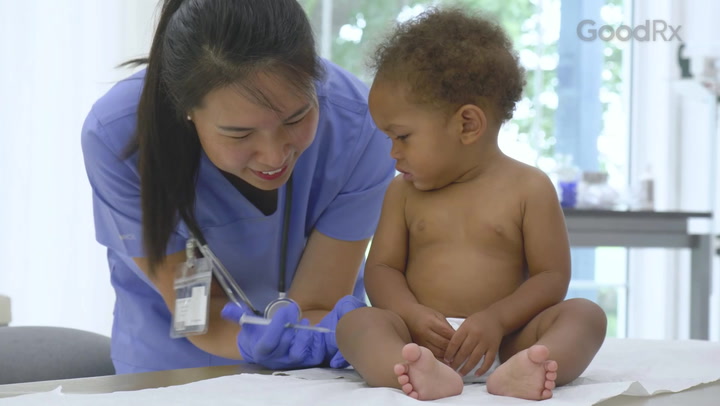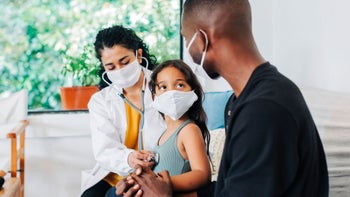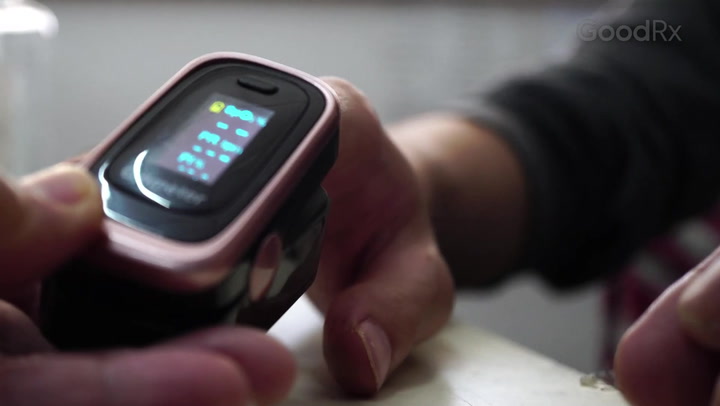
Is the COVID Vaccine Free? Costs, Insurance, Billing, and More Explained
Key takeaways:
The COVID-19 public health emergency is over. The CDC’s Bridge Access Program, which provided free COVID vaccines for underinsured and uninsured individuals at retail pharmacies across the U.S., ended in August 2024.
Most adults with health insurance can still get the vaccine without cost sharing. So can young people who qualify for the Vaccines for Children program.
Local health departments and certain health centers may still offer free COVID vaccines. If you are an uninsured adult who receives a free vaccine, you may be charged an administration fee.
Table of contents

Is the COVID-19 vaccine free? Yes, for individuals younger than age 19 and most people with health insurance. But broad access to free COVID-19 vaccines for uninsured and underinsured adults has ended. Many programs that offered free COVID vaccines began to wind down when the COVID public health emergency ended in 2023. The CDC had been providing free vaccines through its Bridge Access Program, but this ended in August 2024.
You still may be able to access a free COVID vaccine. Read on for more information about location and cost if you have to pay for a shot.
Is the COVID vaccine free?
Free COVID vaccines are not widely available in the U.S. to uninsured and underinsured adults. People under age 19 can still access free COVID shots through the Vaccines for Children program. If you are an uninsured adult who receives a free vaccine, you may be charged an administration fee.
SHINGRIX (Zoster Vaccine Recombinant, Adjuvanted) is now $0 for almost everyone*
Get SHINGRIX at the pharmacy or in-network doctor’s office today. 98% of privately insured people pay $0 and all Medicare Part D beneficiaries pay $0 at the pharmacy.
Prescribing Information
*Coverage and cost may vary and are subject to change without notice. Reimbursement decisions are made by individual insurance plans.


SHINGRIX is an FDA-approved vaccine for the prevention of shingles (herpes zoster) in adults 50 years and older. SHINGRIX is not used to prevent chickenpox.
• You should not receive SHINGRIX if you are allergic to any of its ingredients or had an allergic reaction to a previous dose of SHINGRIX
• An increased risk of Guillain-Barré syndrome (severe muscle weakness) was observed after vaccination with SHINGRIX
• Fainting can happen after getting injectable vaccines, including SHINGRIX. Precautions should be taken to avoid falling and injury due to fainting
• The most common side effects are pain, redness, and swelling at the injection site, muscle pain, tiredness, headache, shivering, fever, and upset stomach
• SHINGRIX was not studied in pregnant or nursing women. Tell your healthcare provider if you are pregnant, plan to become pregnant, or are breastfeeding
• Vaccination with SHINGRIX may not protect all individuals
• Ask your healthcare provider about the risks and benefits of SHINGRIX. Only a healthcare provider can decide if SHINGRIX is right for you
You are encouraged to report vaccine adverse events to the US Department of Health and Human Services. Visit www.vaers.hhs.gov to file a report, or call 1-800-822-7967.
For US audiences.
Trademarks are property of their respective owners.
©️2024 GSK or licensor.
PMUS-SGXWCNT240015 May 2024
Produced in the USA.
GoodRx Health information and resources are reviewed by our editorial staff with medical and healthcare policy and pricing experience. See our editorial policy for more detail. We also provide access to services offered by GoodRx and our partners when we think these services might be useful to our visitors. We may receive compensation when a user decides to leverage these services, but making them available does not influence the medical content our editorial staff provides.
The COVID-19 vaccine is recommended for everyone 6 months and older. Three updated COVID vaccines are recommended by the CDC’s Advisory Committee on Immunization Practices: Moderna, Novavax, and Pfizer. (The Johnson & Johnson vaccine is no longer authorized in the U.S.)
The updated vaccines for the 2024-2025 season protect against current COVID strains.
Is the COVID vaccine covered by insurance?
Most health insurance plans will continue to cover CDC-recommended vaccines, including the COVID-19 vaccine. Private health insurance plans, Medicare, and Medicaid are required to cover all routine vaccines — including COVID-19 — without cost sharing when provided by an in-network healthcare professional. Tricare also covers vaccines on the schedule recommended by the CDC.
Here’s how different types of health insurance cover COVID-19 vaccines.
Medicare and Medicare Advantage
Medicare Part B and Medicare Advantage plans cover COVID-19 vaccines without cost sharing. That means you have no deductible, copay, or other out-of-pocket cost.
Medicaid
Medicaid will continue covering CDC-recommended vaccines for enrolled adults without copays or cost sharing. Covered children typically qualify for the Vaccines for Children program.
COVID-19 vaccines for children: See how to schedule COVID vaccines for children, plus tips to help you and your child prepare for the appointment.
Pick your booster: Which booster shot is best this season? Here’s what to know about eligibility guidelines, risks, and other considerations.
Vaccination after COVID illness: It’s important to get vaccinated even if you’ve had COVID. Learn more about how long you should wait to get a COVID booster after recovering from an infection.
Private insurance
Most private health insurance plans, including those purchased through an Affordable Care Act marketplace, cover COVID vaccines. Vaccines provided by in-network healthcare professionals do not have a copay or coinsurance — even if you haven’t met your deductible.
Tricare
Military members and their dependents are eligible for Tricare health insurance. Tricare covers vaccines on the schedule recommended by the CDC.
How much is the COVID vaccine without insurance?
The vaccine is no longer free for most people without insurance. If you don’t have health coverage and don’t use discounts, you can expect to pay $200 or more for a COVID vaccine. And an administration fee may be added to the cost of your shot. You may be able to save on your COVID vaccine with a GoodRx coupon.
The CDC’s Bridge Access Program had provided free COVID vaccines to uninsured and underinsured individuals at retail pharmacies nationwide. That program ended in August 2024. Some states offer free-vaccine programs for uninsured and underinsured adults.
If you are uninsured, you still may be able to get a free COVID vaccine at:
Health departments run by state, local, tribal, or territorial authorities
Where can I get a COVID vaccine?
You can visit www.vaccines.gov to find a COVID vaccine or booster near you and make an appointment to get vaccinated. Ask about cost and potential discounts in advance.
Browse by vaccine or pharmacy
Browse by vaccine brand:
Browse by pharmacy:
Albertsons | Costco | CVS | H-E-B | Hy-Vee | Kaiser Permanente | Kroger | Meijer | Publix | Rite Aid | Safeway | Target | Walgreens | Walmart
The bottom line
The COVID-19 public health emergency has ended. So have widespread programs offering free COVID vaccines for uninsured and underinsured people. If you are an adult without insurance paying for the vaccine without discounts, expect to spend $200 or more for the shot. You also may be charged an administration fee. You may be able to save on your self-pay COVID vaccine with a GoodRx coupon.
Why trust our experts?


References
Centers for Disease Control and Prevention. (2023). Janssen (Johnson & Johnson) COVID-19 vaccine.
Centers for Disease Control and Prevention. (2024). About the Vaccines for Children (VFC) program.
Centers for Disease Control and Prevention. (2024). Bridge Access Program.
Centers for Disease Control and Prevention. (2024). How to pay for vaccines.
Centers for Disease Control and Prevention. (2025). Staying up to date with COVID-19 vaccines.
Centers for Disease Control and Prevention Newsroom. (2023). HHS launches Bridge Access Program to safeguard free COVID-19 vaccination for uninsured and underinsured adults.
Howard, J. (2024). For people without insurance, updated Covid-19 shots are no longer free of charge at pharmacies. CNN.
Tricare. (2025). Immunizations.























